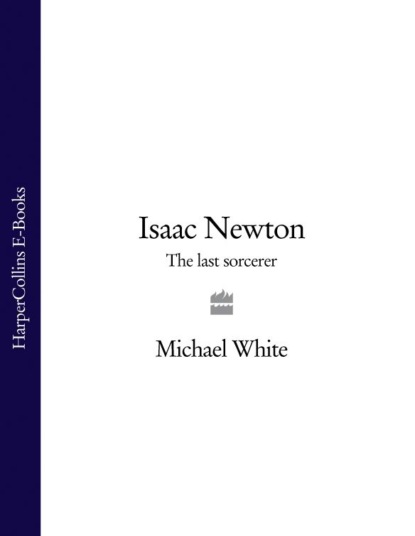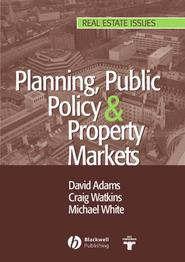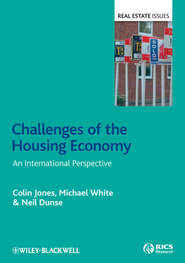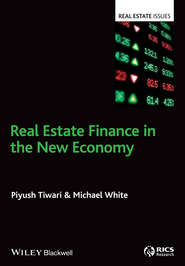По всем вопросам обращайтесь на: info@litportal.ru
(©) 2003-2024.
✖
Isaac Newton: The Last Sorcerer
Настройки чтения
Размер шрифта
Высота строк
Поля
Covering little more than half a square mile, Cambridge had a population of about 8,000 including almost 3,000 students, graduates and university staff. Students could easily find themselves at risk – their souls in jeopardy from the attentions of prostitutes and innkeepers (a danger made much of by the hypocritical masters), and their physical safety threatened by ubiquitous thieves and murderers. In a letter to his mother written in 1664, one John Strype, a young student in his first year at the university, describes graphically the social climate in the town:
We have hereabouts most intolerable robbing: never by reports so much. I have heard within two or three days of six or seven robberies hereabouts committed: whereof two or three killed. No longer than last Sabbath, a mile off, a man knocked on the head. Lately a scholar of Peter House had both his ears cut off, because he told the thieves, after he had delivered some money to them, that he would give them leave to inflict any punishment upon him, if he had a farthing more: but they searching him, found, it seems, 20s. more: so they took him at his word, and inflicted the cheater’s punishment upon him.
(#litres_trial_promo)
Such incidents were not attributable solely to the perceived wealth of the students, nor was it simply that students were easy targets for thieves; there had been bad feeling between town and gown for centuries. Although town considerably outnumbered gown, the lives of the townsfolk were dominated by an autocratic university governing body that often behaved in corrupt and self-interested fashion. Most of the town’s tradesmen relied upon the university for their livelihoods, and many resented the draconian powers of the Vice-Chancellor. His sphere of influence was by no means restricted to university property or the student body: he was, in all but name, a feudal lord who controlled all forms of commerce and oversaw all legal and financial matters within the town. A royal charter drawn up in 1600 stipulated that Cambridge was allowed a mayor, bailiffs and burgesses and that the civic authorities could have and use their own seal. But the final clause of the charter specified that ‘Nothing in this charter shall prejudice or impede the privileges, liberties and profits of the Chancellor, Masters and Scholars of the University.’
(#litres_trial_promo)
Little over a year before Newton arrived in the town, the Mayor had been humiliated by the Vice-Chancellor and made to apologise for apparently overstepping his authority. In his written recantation, he was forced to make it clear exactly who was boss:
Whereas I, Edward Chapman, Mayor of the Town of Cambridge, did upon the XXVIth day of February 1660 by error send my warrant for releasing of William Land, John Devole and James Delamot out of the Tolbooth Gaol, to which they had been committed by the then Vice-Chancellor, Dr Ferne, I therefore, in satisfaction to the University, hereby acknowledge the error and do promise not to do or to my power suffer anything hereafter to be done that may anyways infringe the liberties or privileges of this University to my knowledge. In witness whereof I have set my hand the second day of March in the year of our Lord God 1660.
(#litres_trial_promo)
Amazingly, little changed until the late Victorian era, when both the power of the university over the town and the limitations placed upon the freedom of students were gradually eroded. In Newton’s student days – and until long after Darwin attended the university during the late 1820s – the activities of the students were monitored by the university police, the proctors. Students were forbidden to associate with tradesmen, to drink in taverns, to have dealings with prostitutes and to break an evening curfew. Although many of these rules were frequently broken by the students and their enforcement was lax, examples were made.
Outside the city walls, England had changed and was continuing to change, but little of this was reflected in the attitude of the university authorities or in the antiquated curriculum taught. The peaceful restoration of the monarchy in 1660 had brought with it a nationwide climate of renewal. Cromwell’s Protestant Commonwealth had died with him in 1658, and, although the country would remain suspicious of the Catholic leanings of the house of Stuart, Newton entered Cambridge in 1661 in a new age of religious tolerance and political stability.
This radically altered the broader character of society, and fellows of the university who had fallen victim to Puritan purges were reinstated (although not to the exclusion of former Roundhead sympathisers). Yet the university authorities maintained a hold over the town hardly changed since medieval times. Since the reign of Henry VIII, the King had the legal right to shut down any college in the realm and claim its possessions. Consequently the university remained loyal to the Crown, and as a monarchist institution it was rooted in tradition and notions of a glorious past.
To Isaac Newton – a country boy who had never visited a town larger than Grantham – Cambridge was Avalon. He left Woolsthorpe on the second or third day of June 1661 and set out along the Great North Road on the fifty-mile trip to the town that would be his home almost without a break for the next thirty-five years. En route, he broke his journey first at Sewstern, where he took his first look at a piece of land bequeathed to him in Barnabas Smith’s will (the annual income from which would pass to him after his twenty-first birthday), and then at Stilton on the approach to the Great Fens, a day’s ride from Cambridge.
According to Stukeley, on Newton’s last day under Stokes’s tutelage the proud headmaster made his prize student stand in front of the school while he delivered a speech praising the boy and, with tears in his eyes, urged Newton’s fellow pupils to follow his academic example. Apparently the other boys were as moved as their headmaster. More believable is Stukeley’s admission that the farm hands and servants at the manor were glad to see Newton leave home and ‘rejoiced at parting with him, declaring, he was fit for nothing but the “Versity”’.
(#litres_trial_promo)
Hannah, however, had ensured that her son would not be allowed fully to escape the mundanity of ‘real life’ and the hardships he may have thought he was leaving behind.
When Newton enrolled at Trinity College, on 5 June 1661, he entered the college on the lowest rung of the social ladder, as a subsizar (becoming a sizar after he had matriculated at Trinity a month after his arrival). Subsizars and sizars were little more than servants who paid their way by emptying the bedpans and cleaning the rooms of the more privileged students. These included the elite – fellow-commoners, young men from noble families, and pensioners (usually the sons of wealthy businessmen).
The exact form that sizarship took for Newton remains unclear. Traditionally, sizars waited on other students, but there was another type who worked solely for one fellow, invariably their tutor. It has always been supposed that Newton’s sizarship was of the first type, and this may be true, but there is evidence to suggest that he was in fact sizar to Humphrey Babington, brother of Mrs Clark, the Grantham apothecary’s wife, and fellow of Trinity.
It may even have been that Newton was only able to attend the university thanks to Babington taking him on as his personal servant. Babington had himself been a Cambridge student. As a royalist sympathiser, he had been sacked from his fellowship under the Puritan purge of the Commonwealth years but was reinstated with the Restoration. After Newton’s death, Ayscough family tradition had it that ‘the pecuniary aid of some neighbouring gentleman’
(#litres_trial_promo) had enabled Newton to study at Cambridge.
If Newton was Babington’s sizar his duties would have been particularly easy, because his master was in college for only a few weeks a year and would have demanded little of him. What is clear is that the conflict of interests between Isaac’s mother and those who saw scholarly potential in the young man did not end when Hannah complied reluctantly with the wishes of Babington, Ayscough and Stokes. Newton’s academic fees at the university were in the region of £10 to £15 per year, and he was given an allowance of a further £10. Both of these expenses were met by Hannah. But, considering she commanded a very comfortable annual income of around £700, it is evident that she wanted deliberately to make life hard for her son at Cambridge.
Sizarship was bad enough for those who could afford nothing better, and the failure rate of sizars was naturally much higher than that of the more privileged pensioners and fellow-commoners. But for Newton the shame of having to empty the chamber-pots of rich contemporaries, or the stigma of running errands for his tutor, must have weighed heavily.
Although he may have had an easier time of it than most subsizars, Newton was still, in the eyes of the college and his contemporaries, on the lowest rung of the social ladder. As a consequence, he would have been treated with contempt by those in superior social positions or else ignored by the sons of the wealthy who considered the university a playground – a place in which to waste a few years before accepting undemanding roles in the upper reaches of society.
Aside from making him even more determined to create an impression, this new humiliation did little for the positive aspects of Newton’s personality as a youth. It fuelled the flames of his insecurity and led to a desire to improve his social status and to sever further the links with his family, to leap at any chance of social improvement. If Hannah had imagined that by deliberately making life difficult for her son he might be persuaded to give up notions of an academic life and return to the family farm, she clearly did not know him. If her actions created anything positive it was to convince him he had to break away from Woolsthorpe, to turn even further in upon himself and to excel within his vocation.
The academic pattern at Cambridge had been set by the Elizabethan Statutes of 1571, which not only dictated the manner of dress and conduct of students and academic staff but also determined the structure of degree courses. To obtain a BA, all students had to reside in the university for a minimum of twelve terms of tuition (four years) and to attend all public lectures given by the members of the college faculty. There was really only one course. The first year covered rhetoric, the art of eloquent oral and written communication, encompassing classical history, geography, art, scripture and literature. Also, by the end of their first year students were expected to be fluent in Latin, Greek and Hebrew.
For a time, Newton became a conscientious and dedicated student, but, initially at least, he neither shone nor attracted the attention of his masters. In fact, he was all but invisible. Like most of his fellow students, he had little intellectual guidance. Upon his arrival, he was assigned a tutor who was both his teacher and a surrogate parent – one Benjamin Pulleyn, of whom little is known except that he entered Trinity in 1650 as a sizar and rose to the position of Regius Professor of Greek, a seat he occupied for twelve years. Pulleyn was a lax tutor in an academically sterile university. Known as a pupil-monger – he took on as many students as possible, to bolster his meagre income – he did almost nothing to help Newton, who was just one of over fifty undergraduates in his care.
Within weeks of his arrival, Newton had cut himself off from the other sizars and, following the pattern of life at school in Grantham, he began a very lonely first year at the university. It is significant that not one anecdote of Newton’s earliest period at Trinity has been passed on to us from fellow students. There is no record of a personal relationship with any other student even in the most vague terms, except that he appears to have detested his room-mate. We only know this from two ‘confessions’ which appear in the Fitzwilliam Notebook. The first of these is ‘Using Wilford’s towel to spare my own’; the other involves Newton owning up to the sin of ‘Deceiving my chamberfellow of the knowledge of him that took him for a sot’.
(#litres_trial_promo) From the first of these we can glean that Newton’s first room-mate was the otherwise unknown Francis Wilford, who appears in the Alumni Cantabrigienses as a pensioner admitted to the college on the same day as Newton. It is also clear that Newton did little to endear himself even to the unfortunate Wilford; small wonder his first year was a lonely one.
Apart from the frustration his mother had caused him, Newton had two other problems during his early days at the university. The first was his age. Almost nineteen that first autumn, he was two years older than the average student. Although some have suggested that this may have been to his advantage academically, in terms of helping him to mix with the other students it could only have been a hindrance. The second and more serious difficulty, and one which was to remain with him throughout his academic life, was his Puritan faith. The teaching of the era centred around the great universities was supported and sustained by the orthodoxy of the Anglican Church. And, although the Restoration had heralded a religious tolerance that would remain a central pillar of British society, Newton was expected to subscribe officially to the tenets of the Anglican Church and to keep his Puritan beliefs to himself.
But, in spite of the potential problems offered by his religious leanings and the extra barrier they created between him and other, orthodox, students, his Puritan ethics also fuelled his drive to learn and focused his thoughts and energies. The distress his mother had caused him early in life had left Newton damaged and emotionally impotent. Puritanism offered him a world with strict emotional and sensual limits in which he did not have to find excuses for his inability to love – a world in which the twin pillars of God and Knowledge (the search for which was a God-given responsibility) could replace most other needs. With Puritanism and the thirst for understanding as his guides, he could at least attempt to shun sex, ignore any lingering desire to marry or to have a family, and keep in check his material ambitions and social goals.
In his first academic year, at least, Newton was preoccupied with sin and with the slightest let-up in religious observance – an obsession which led later in that year to the purchase of the notebooks in which he confessed his misdeeds, past and present. Although he lightened up a little and enjoyed the odd ale and game of cards in a tavern later in his postgraduate days, during his first few months in Cambridge, outside his lectures and tutorials, Newton existed in a permanent state of isolation – lonely, disorientated and trying to feel his way into an alien world of new-found but largely scorned freedom.
His was not the Puritanism of the political extremist (of which there were still many following the turbulent days of civil war and regicide); nor was he the Puritan of the Victorian caricature – the solemn kill-joy who saw debauchery and evil in all the doings of his fellow man. Newton was of the type that elevated the principles of hard work and dedication to learning as the highest hopes of humanity. He believed that the acquisition of knowledge and the unravelling of Nature’s truths were to the greater glory of God. But to his contemporaries he must have appeared a flashing beacon of misanthropy.
If he professed indifference towards almost every other student he encountered, they must have been even more dismissive of him. He could suffer this, and indeed appeared to care little what his fellow students thought of him. An example of his high-mindedness comes from the oldest letter in Newton’s hand, written to a sick friend around 1661:
Loving friend,
It is commonly reported that you are sick. Truly I am sorry for that. But I am much more sorry that you got your sickness (for that they say too) by drinking too much. I earnestly desire you first to repent of your having been drunk & then to seek to recover your health. And if it please God that you ever be well again then have a care to live healthfully & soberly for time to come. This will be very well pleasing to all your friends, especially to
Your very loving friend.
I.N.
(#litres_trial_promo)
During his early days at university it was not just his pious detachment from everyday pleasures that so alienated Newton: he did little to encourage others to like him. An example of this was his decision to become a money-lender.
It is easy to imagine Newton at the age of nineteen or twenty growing to accept that he could not mix easily with the other students. He had also been left to his own devices to supplement Hannah’s allowance, and by this time he was certainly showing an active interest in money. Indeed, one of his repeated confessions in the list of sins of the Fitzwilliam Notebook is that of paying too much attention to money: ‘Setting my heart on money more than God’, as he put it. This was followed by several incidents of ‘relapse’.
(#litres_trial_promo) Being the meticulous record-keeper for which he was later renowned, Newton noted every transaction in another notebook he purchased at Trinity:
His Puritan caution showed in the fact that he never lent more than £1 to a debtor, and when he did deal with such large sums his nervousness shows in a note beside this transaction: ‘to be paid on Friday’.
(#litres_trial_promo)
Newton was never a big-time loan shark, but by the end of his second year business was flourishing and he kept it up until he became a man of independent means two years later. Quite how he started in business is unclear. Bearing in mind his own precarious financial position when he first arrived at Trinity, one can only assume he took a risk by making a short-term loan and then began to realise the potential of the venture.
A short time later, things began to improve on other fronts. Eighteen months after arriving at Trinity, Newton managed to change room-mate. John Wickins, the son of the Master of Manchester Grammar School, entered Trinity as a pensioner early in 1663 and met Newton towards the end of his first term. Sadly, aside from a few comments about Newton’s hypochondria and brief descriptions of his work patterns, Wickins, who lived with Newton for over two decades (until he gave up his fellowship in 1683), left little record of their close association.
(#litres_trial_promo) The most detailed recollection that he passed on to his son Nicholas in old age was a brief description of his first meeting with Newton, in 1663:
My Father’s intimacy with him came by mere accident. Father’s first chamber-fellow being very disagreeable to him he retired one day into the walks where he found Mr Newton solitary & dejected. Upon entering into discourse they found their cause of retirement the same & thereupon agreed to shake off their present disorderly companions & chum together, which they did as soon as conveniently they could & so continued as long as my father stayed at college.
(#litres_trial_promo)
Wickins’s reticence in discussing what must have been one of the most important relationships of his life is odd. He and Newton separated in 1683 under a cloud, and, despite Wickins living for another thirty-six years, the two men never met again.
So, who exactly was John Wickins, and what was the nature of his relationship with Newton? From the story of their introduction, it is clear they must have been of similar temperament. Both were unhappy with their ‘disorderly companions’ and each quickly saw a kindred spirit in the other. Their staying room-mates for the next twenty years (including a move in 1673 to rooms in Great Court) is evidence of their closeness.
Wickins also became Newton’s assistant. He regularly transcribed experiment notes and helped set up apparatus and monitor investigations. Their rooms became a live-in laboratory, at first strewn with documents and simple home-made optical instruments but later crowded with furnaces and bottles of chemicals. Wickins eventually became a clergyman, married and had a family. Shortly after his departure, Newton sent him a parcel of Bibles to be distributed to his flock in the village of Stoke Edith, near Monmouth. The only other correspondence occurred some thirty years later, when Wickins wrote to ask his erstwhile room-mate for a further donation of Bibles and attempted to start a friendly exchange. Newton duly sent the Bibles but brushed off any subtle overtures of Wickins by ending his letter with the rather curt ‘I am glad to hear of your good health, & wish it may long continue, I remain … Newton’.









